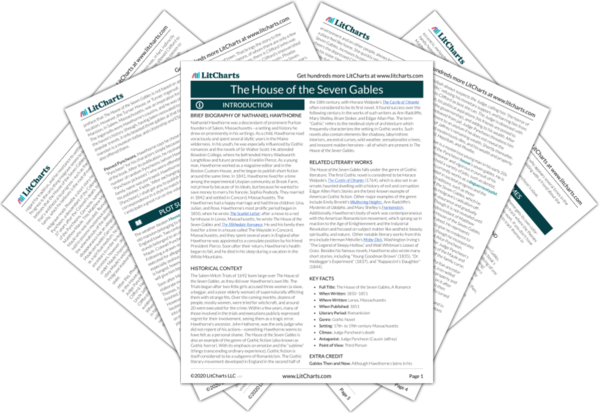Tellingly, Alice seems not only to retain her innocence after Maule’s intrusion into her mind, but her own will seems to become purer than ever. This suggests that true innocence really does overpower horror and evil in the end, even if only in death. Maule, meanwhile, actually gets no joy from his actions, suggesting that pride is the Maules’ besetting fault as greed is for the Pyncheons.
